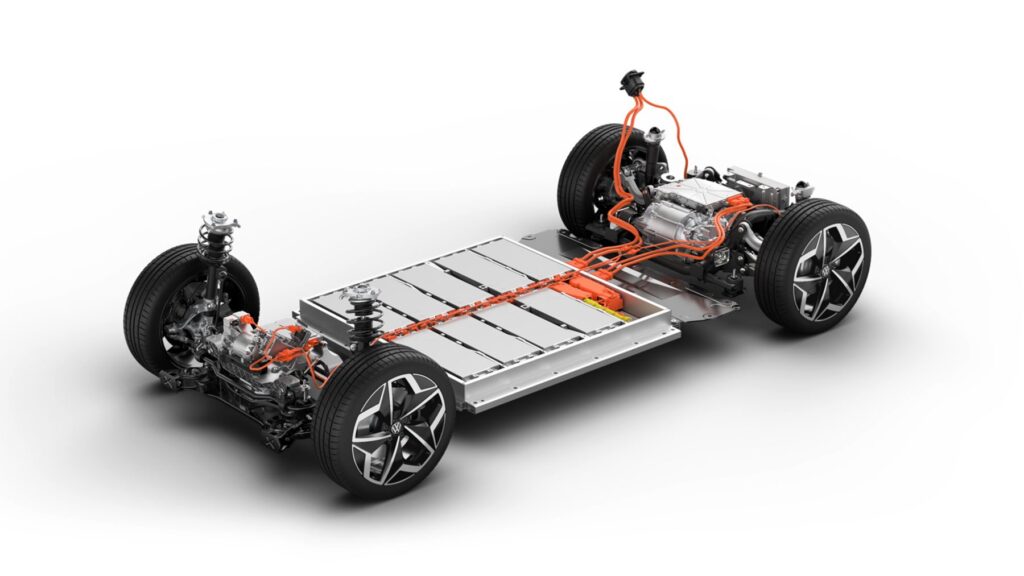Electric vehicles (EVs) are transforming the automotive industry, and their batteries are at the forefront of this innovation. With the increasing demand for sustainable transportation solutions, electric vehicle battery technology has become a critical area of focus for researchers and manufacturers alike. This article will explore the current state of electric vehicle batteries, their innovations, and what the future holds for this promising technology.
Introduction
Electric vehicles are powered by batteries that store electrical energy, which is used to power the vehicle’s electric motor. The development of these batteries has been a crucial driver of the growth of the electric vehicle industry. In the past, battery technology has been a significant barrier to EV adoption due to their high cost, limited range, and long charging times. However, recent advancements in battery technology have made EVs more affordable, with longer ranges and faster charging times, making them a viable alternative to traditional gas-powered vehicles.
Related Readings:
The Future of Electric Vehicles: Trends and Predictions
Types of Electric Vehicle Batteries

There are different types of batteries used in electric vehicles, each with its advantages and disadvantages. The most commonly used types of batteries in EVs include:
Lithium-Ion Batteries
Lithium-ion batteries are the most popular type of battery used in electric vehicles. They are lightweight and have high energy density, making them ideal for EVs. Lithium-ion batteries can store a large amount of energy and are efficient at discharging it, making them a perfect choice for long-range EVs.
Nickel-Metal Hydride Batteries
Nickel-metal hydride batteries were the first type of battery used in electric vehicles. They are heavier than lithium-ion batteries and have a lower energy density, which means they can store less energy. Nickel-metal hydride batteries are typically used in hybrid electric vehicles, where they are combined with gasoline engines to improve fuel efficiency.
Solid-State Batteries
Solid-state batteries are a newer type of battery that uses a solid electrolyte instead of a liquid electrolyte. These batteries have several advantages over traditional lithium-ion batteries, including higher energy density, faster charging times, and longer lifespan.

Innovations in Electric Vehicle Battery Technology
Innovation in electric vehicle battery technology is crucial to improving the performance and reducing the cost of EVs. Here are some of the latest innovations in electric vehicle battery technology:
Silicon Anodes
Silicon anodes are replacing traditional graphite anodes in lithium-ion batteries, which has improved battery capacity and lifespan. Silicon anodes can store up to ten times more energy than traditional graphite anodes, making them ideal for electric vehicles.
Solid-State Batteries
Solid-state batteries use a solid electrolyte instead of a liquid electrolyte, which makes them safer and more reliable than traditional lithium-ion batteries. They also have a higher energy density, faster charging times, and longer lifespan.
Wireless Charging
Wireless charging technology allows electric vehicles to be charged without the need for cables or plugs. This technology is still in its early stages but has the potential to revolutionize EV charging by making it more convenient and accessible.
Future of Electric Vehicle Battery Technology

The future of electric vehicle battery technology is bright, with significant advancements being made every day. Here are some of the potential developments in EV battery technology that we can expect to see in the future:
Increased Range
The range of electric vehicles is expected to increase significantly in the coming years, thanks to advancements in battery technology. This will make EVs more practical and convenient for longer journeys.
Faster Charging
Faster charging times are another area of focus for EV battery technology. As charging times improve, EVs will become more convenient and accessible to a wider audience.
More Sustainable Materials
The use of more sustainable materials in EV batteries, such as recycled materials or materials derived fromrenewable energy sources, is another area of focus for EV battery innovation. This will reduce the environmental impact of EVs and make them even more sustainable.
Vehicle-to-Grid Technology
Vehicle-to-grid (V2G) technology allows electric vehicles to store energy from the grid and feed it back when needed. This technology can help to balance the electrical grid and reduce the reliance on fossil fuels.
Conclusion
Electric vehicle battery technology has come a long way in recent years, and the future looks bright. With continued innovation, electric vehicles will become even more practical, efficient, and sustainable. The advancements in battery technology have already made EVs more accessible to a wider audience, and with continued research, they will become even more commonplace.
FAQs
- What is the lifespan of an electric vehicle battery? The lifespan of an electric vehicle battery can vary depending on the type of battery and usage, but most batteries last between 8-10 years.
- How long does it take to charge an electric vehicle battery? The charging time for an electric vehicle battery varies depending on the battery size and charging method, but most EVs can be charged in a few hours with a level 2 charger.
- Are electric vehicle batteries safe? Yes, electric vehicle batteries are safe when used and maintained correctly. They have many safety features built-in to prevent overheating or other issues.
- How does the cost of an electric vehicle battery compare to a traditional gas-powered vehicle? The cost of an electric vehicle battery is typically higher than a traditional gas-powered vehicle, but the overall cost of ownership is lower due to the lower cost of electricity and maintenance.
- What is the most significant challenge facing electric vehicle battery technology? The most significant challenge facing electric vehicle battery technology is reducing the cost of the batteries while improving their performance and lifespan. This will make electric vehicles more accessible and practical for a wider audience.


